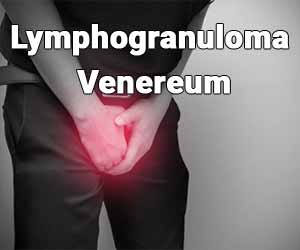- Home
- Editorial
- News
- Practice Guidelines
- Anesthesiology Guidelines
- Cancer Guidelines
- Cardiac Sciences Guidelines
- Critical Care Guidelines
- Dentistry Guidelines
- Dermatology Guidelines
- Diabetes and Endo Guidelines
- Diagnostics Guidelines
- ENT Guidelines
- Featured Practice Guidelines
- Gastroenterology Guidelines
- Geriatrics Guidelines
- Medicine Guidelines
- Nephrology Guidelines
- Neurosciences Guidelines
- Obs and Gynae Guidelines
- Ophthalmology Guidelines
- Orthopaedics Guidelines
- Paediatrics Guidelines
- Psychiatry Guidelines
- Pulmonology Guidelines
- Radiology Guidelines
- Surgery Guidelines
- Urology Guidelines
2019 European guideline on the management of lymphogranuloma venereum

2019 European guideline on the management of lymphogranuloma venereum has been released which is an update on 2013 European guideline on the management of lymphogranuloma venereum (LGV).
Lymphogranuloma venereum (LGV) is endemic among European men who have sex with men (MSM) since 2003. It is a relatively common cause of proctitis, but rarely causes genital or oro‐pharyngeal infections. Although other strains like serovar/genovar L2 have been identified, subvariant L2b is the causative strain in the majority of cases in Europe, and a high degree of clonal relatedness has been found with genome sequencing techniques.
Highlights of the Guidelines are:
Epidemiology
- Lymphogranuloma venereum continues to be endemic among European men who have sex with men (MSM) since 2003.
- Lymphogranuloma venereum infections in heterosexuals are extremely rare in Europe, and there is no evidence of transmission of LGV in the European heterosexual population.
Aetiology and transmission
- Chlamydia trachomatis serovars/genovars L2b and L2 are the causative strains in the majority of cases in Europe.
Clinical features
- Among MSM, about 25% of the anorectal LGV infections are asymptomatic.
- Genital infections among MSM are rare; the ratio of genital vs. anorectal LGV infections is 1 in 15.
Diagnosis
- To diagnose LGV, a sample tested C. trachomatis positive with a commercial nucleic acid amplification test (NAAT) platform should be confirmed with an LGV discriminatory NAAT.
Treatment
- Doxycycline 100 mg twice a day orally for 21 days is the recommended treatment for LGV.
- Azithromycin in single‐ or multiple‐dose regimens or shorter course of doxycycline (100 mg twice a day orally for 7–14 days) has also been proposed, but consistent and concluding evidence is lacking to currently recommend these drug regimens as first‐line options (2,D). If alternative treatment regimens are used, it is advised to perform a test of cure (TOC) (2, D).
- This same treatment is recommended also in asymptomatic patients and contacts of LGV patients. If another regimen is used, a test of cure (TOC) must be performed.
Adjunctive Therapy
- Apart from oral antibiotic therapy, fluctuant buboes should be drained via needle aspiration through healthy overlying skin (2,D). Repeat visits might be necessary to ensure re‐emerging buboes are drained.
- Surgical incision of buboes is not recommended due to potential complications such as chronic sinus formation (2,D).
- Patients with residual fibrotic lesions or fistulae do not benefit from further courses of antibiotics. Surgical repair, including reconstructive genital surgery, should be considered (2, D).
Prevention/health promotion
Patients diagnosed with LGV should be counselled regarding prevention of other STIs including HIV and hepatitis C:
- Offer regular sexual health screening including HIV testing.
- Condom use should be demonstrated and promoted.
- Offer hepatitis A and B vaccination for MSM.
- HIV‐negative patients should be advised of the availability of PrEP to prevent HIV infection.

Disclaimer: This site is primarily intended for healthcare professionals. Any content/information on this website does not replace the advice of medical and/or health professionals and should not be construed as medical/diagnostic advice/endorsement or prescription. Use of this site is subject to our terms of use, privacy policy, advertisement policy. © 2020 Minerva Medical Treatment Pvt Ltd